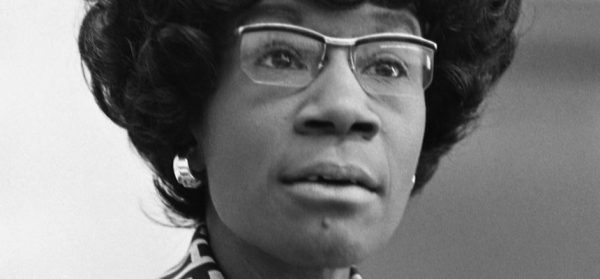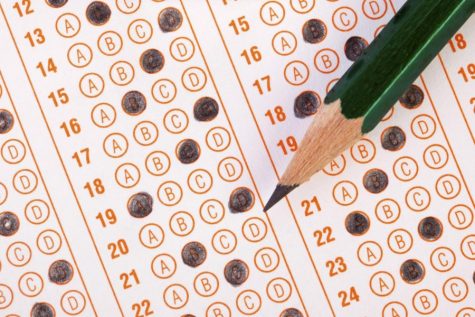How honorable is the PMHS honor roll?

Here in Pelham, every kid is a genius. Or at least, that’s what the school district tells us. Every quarter, Pelham Memorial High School releases a list of every student who meets the current standards for either honor roll or high honor roll. This previous quarter, 584 students qualified for the high honor roll and 75 qualified for the honor roll for a grand total of 659 students. This number accounts for more than seven in 10 students in the high school, exactly 72.1 percent of the student body. Not to mention, each student who makes the honor roll has their full name released for public consumption. Thanks to the sheer number of students who make these lists and the fact that their names are inappropriately released, honor rolls in Pelham have overstayed their welcome and must be ended.
The first major issue with the current state of our honor rolls is the loose standards which result in the majority of the student body making the list. The current qualifications according to the PMHS website are a 90 percent unweighted average with no grade below 75 for high honor roll, and an 85 percent average with no grades below 75 for honor roll. While those qualifications might appear demanding, the fact that nearly 75 percent of the student body meets them proves that they aren’t. How is it honorable to make a list with nearly every one of your peers? Effectively, there is no point in awarding such an honor if it includes nearly everyone. It’s the same as giving participation trophies to every team that makes the second round in March Madness; utterly pointless and helpful to no one. Or, if it’s not a participation trophy, it’s a glaring example of how easy grading is in Pelham schools today. If Pelham is the type of school district to give every student a 90, then perhaps the honor roll should reflect that with a new standard of 95.
Additionally, it is important to take note of the fact that students in Pelham take a wide variety of classes. One student may take no APs or honors classes while another may take three or more, though they could be members of the same grade. An AP level student may have an 88 unweighted average and a 92 weighted, while a Regents level student may have a 95 unweighted and weighted average. One student may be scoring higher; however, that does not accurately reflect how much work is involved and how complex the curricula of those advanced classes are. Students who excel in non-advanced classes deserve recognition, but this current system shows no way of distinguishing between which students are members of advances classes versus non-advanced. The current honor roll uses unweighted averages versus weighted averages, which add point compensation to reflect the rigor of advanced classes. This is simply not right. Students who take harder classes deserve recognition for their achievement.
The final major problem with the current state of the honor roll is the lack of discretion regarding the release of names. Typically, members of the administration and teaching staff strongly advise students against talking about or comparing each other’s grades. By releasing names, that is exactly what ends up happening. This list tells us which students have higher grades and, by omission, which have lower grades. It simply does not adhere to the school’s policy of grade discretion. How can the district expect students to not share grades when they do just that district-wide every quarter? It is hypocritical.
While recognizing student achievement in and of itself isn’t an issue, the current way we go about it in Pelham is flawed. PMHS allows nearly three out of every four students on the honor rolls, doesn’t take into account the level and rigor of classes and publishes the names of those who make the list, thus implying the grades of certain students. This system does not effectively go about honoring students for their work, and until the district makes serious changes to the way it goes about doing the honor rolls, it must end.
Nick Lieggi is a freshman at Oxford College of Emory University and was a member of the PMHS class of 2020. He began his journalism career at the Pelham...













Emily Meyerson • Mar 6, 2019 at 12:22 pm
You can still enjoy an honor even if the majority of your peers have earned it too. Success is not a zero sum game. You can feel happy that kids in non-honors classes are succeeding and being recognized for their success just as kids in honors classes are succeeding. We all have strengths and challenges. It’s inspiring that Pelham recognizes all kinds of students.
Liz Massie • Feb 12, 2019 at 9:45 pm
What a refreshing and spot-on opinion piece! The honor roll, the participation trophies, the ten thousand senior and junior academic awards and the equally numerous sports awards seem designed to honor as many students as possible. What happened to encouraging young people to strive for excellence and making that hard to achieve? Why are we constantly seeking to protect them from disappointment and failure when those are the most valuable lessons they can learn? These so-called honors are not rewarding excellence, which should have a recognizable and calculable value. Is this the best way to prepare teenagers for college and the outside world? Will they expect an award at their first job just for “participating”? Will their fragile egos be crushed when that doesn’t happen? The honored kids are of course wise to all this: they know these recognitions are meaningless when the criteria are so broad. But you know who doesn’t know that? The MINORITY of students who don’t get on the over-populated honor roll and don’t win awards. They stick out like sore thumbs at ceremonies where their names are not called out – and their absences easily tracked on the widely published honor roll. That is a lot crueler and more demoralizing than raising the bar for all. I say ditch the honor roll completely but if you want to keep it, reward the top 5% who are truly outstanding. Give out 20-30 senior awards instead of 200 and give them for truly outstanding achievement or contribution. If you’re going to hand out honors and awards, make them mean something. We treat children today like delicate flowers who need constant validation. That does a grave disservice to them and to society.
Elizabeth Herbert-Wasson • Jan 6, 2019 at 7:36 am
When thinking about an honor roll, I think it can be important to look at the distinction between personal achievement and relative achievement. In education language it’s the same as “norm referenced” and “criterion referenced” assessments. Norm referenced systems place value on a relative position. For one person to demonstrate success, another has to fail. If the achievement is about outdoing peers, there is often less of a focus on your own learning because the outcome is about being better than someone else rather than on being the best version of yourself. Criterion referenced systems focus on development of skills and knowledge. Can you demonstrate you know or can do a certain thing? Awesome. Can the whole class demonstrate that understanding? Even better. If achievement is about developing as a learner and meeting objective benchmarks, it doesn’t matter what grades your peers get. In the latter case the best outcome would be all students making honor roll because that would mean that all students are growing as learners and deepening their understanding together. As an educator and a parent I love the see that so many students are making honor roll because that suggests a high level of engagement in schooling by the students of Pelham. Herve Varenne at Teachers College (Columbia University) wrote a great book on this topic – Successful Failure – if you are interested in exploring the topic in more depth.
Michael Dolen • Jan 4, 2019 at 4:45 pm
It would be nice to see a deeper dive into this story. Historically has this over inflated list changed. Has it lost its merit over time? Is this a new trend?